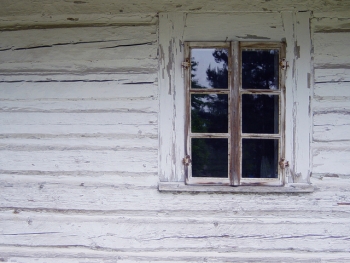chiaroscuro {kee-ahr-oh-SKYOOR-oh. Noun and adjective}
~MEANING: This is a word whose literal meaning, "light-dark," describes a sufficiently universal quality for it to be applied to a wide range of "things": style, method, treatment, effect, sketch, print. Figuratively, chiaroscuro can be "used of poetic or literary treatment, criticism, mental complexion, etc., in various obvious senses, as mingled "clearness and obscurity," "cheerfulness and gloom," "praise and blame."~From Endangered Words, A Collection of Rare Gems for Book Lovers by Simon Hertnon
All the while, we rode with the sound of classical music drifting from the car radio, rain drizzling down the windshield under a sky the color of a silver nickel. We'd driven out to the country, about twenty miles from our new home, hoping to discover a DMV that would be less crowded. I couldn't help but observe the multiple contrasts as we roamed the smooth, less-traveled blacktop. Miles and miles of lanky pines. Stately homes in the middle of a lonely field, white columns holding up the porches, front doors painted red or turquoise. Other homes with caved-in roofs and peeling paint, the windows still intact. A red-brick church with a sign outside its doors that proclaimed: "A half-truth is still a lie." Another church, dilapidated, rain dripping on concrete floors from holes in the roof, the Last Supper with New Testament characters depicted in a faded, wooden display near the church entrance, now bizarrely open showing the empty facade. A pristine red and white Coca-Cola truck delivering product to a run-down convenience store. Then a line of cars--people waiting to be tested for COVID-19 next to a sign that advertised, "Twenty Ribeye Steaks For $30."
These contrasts reminded me of a conversation I had a few days ago with a man doing work for us in our new home. He is a hard worker and a skilled craftsman. I sat in a corner with my phone, attempting to make the many changes one has to perform when changing addresses. The man laid down his drill, and the room became strangely quiet. Then he spoke in the silence between us. "I'm really worried about our country." I looked up from my phone and made eye contact. "What worries you the most?" I asked. He answered, "We are so divided, you know?" I could hear the ache in his voice, see the pain in his eyes. He touched his mask then (we had requested that he wear one while working in the house) and said, "I don't really believe in masks. I think this whole COVID thing is a hoax, no worse than the flu. The government is trying to take over our lives."
I wasn't really expecting to hear this. I didn't know how to respond. I remained neutral and said, "I can tell you feel passionate about what you believe." Almost before I got those words out of my mouth, he said, "I love my country and hate what's happening, you know/" He kept saying, "you know." I didn't know. I didn't agree with him. I finally said, "Well I agree with you that I hate what's happening. What do you think is a starting point for repairing the fissures between people?" I asked.
"We've got to stop fighting and find some compromises."
"This could be a good start," I replied.
I realized after this brief conversation that I'd lumped persons with this man's viewpoints into a whole. As "them." Yet here was someone right in front of me, a well-intentioned man with a soul and a family. A life. He could have been my brother. While I disagreed with him on many points, I could attempt to see the country through his eyes. Increase my empathy toward him. Formulate a gentle reply when I disagreed, rather than get defensive. Ask open-ended questions. See him as a person, not as "them." Seek to understand, rather than to be understood. Love my brother amidst the contrasts, both of us a mysterious array of light and dark.

